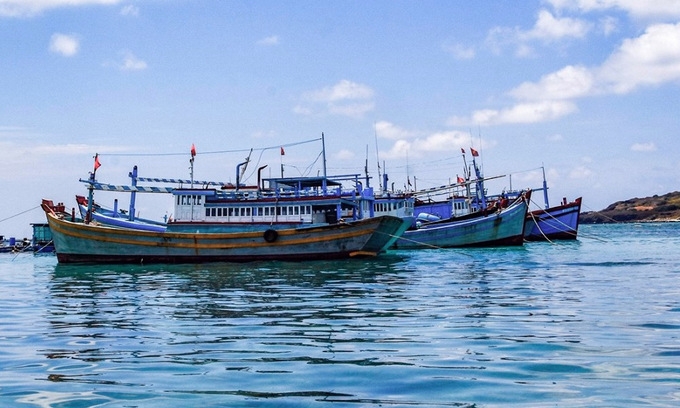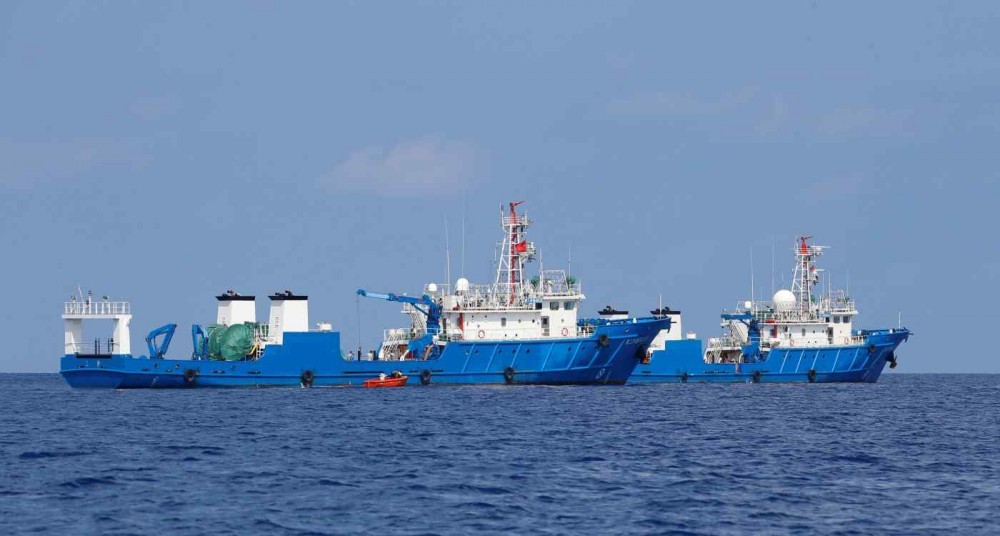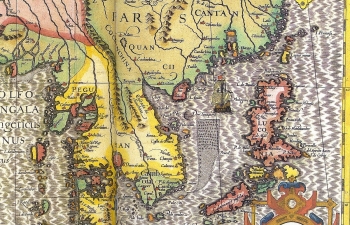China again imposes illegal fishing ban in East Sea
 |
| Vietnamese fishing boats are anchored off the south central coast in Binh Thuan Province, April 29, 2019. Photo by Le Dang/Vnexpress |
The three-and-a-half-month ban started in the Bohai Sea, the Yellow Sea, the East China Sea and the waters north to 12 degrees north latitude of the East Sea.
China says it enacts the fishing ban annually to preserve fishing stocks in its territorial waters, a sustainability practice.
The coast guard authority said the ban will be strictly enforced. All waters under the fishing ban will be monitored 24 hours a day and any violation will be dealt with in time, according to the China Coast Guard.
The fishing ban will run from May 1 to August 16.
China is known for being one of the largest sources of illegal, unregulated, and unreported fishing in the region, according to the 2019 IUU Fishing Index.
It is also not a member of the Southeast Asian Fisheries Development Centre, the main intergovernmental organisation in Southeast Asia devoted to fisheries protection and sustainable development.
Vietnam rejects China's fishing ban in South China SeaIn past years, both Vietnam and the Philippines have rejected China’s fishing ban over the area. "Vietnam opposes and resolutely rejects China's unilateral fishing ban decision," foreign ministry spokeswoman Le Thi Thu Hang said on May 4, 2019. China's agriculture ministry announced the ban on Wednesday, which it said would apply to both Chinese as well as foreign vessels, warning violators would be detained and fined by Chinese authorities. Vietnam calls the waters the East Sea. The ban is for three and a half months and covers the area between China's Fujian and Guangdong provinces, which includes Vietnam's Paracel Islands, parts of the Gulf of Tonkin and the Scarborough Shoal, which is claimed by the Philippines. |
The ban violates Vietnam's sovereignty over the Hoang Sa (Paracel) Islands and its legitimate rights and interests in its waters, as well as international law, including the 1982 United Nations Convention on the Law of the Sea (UNCLOS).
It also goes against the spirit and text of the Declaration on the Conduct of Parties in the South China Sea (DOC) between ASEAN and China, and violates the Vietnam-China Agreement on the Basic Principles Guiding the Resolution of Maritime Issues, foreign ministry spokeswoman Le Thi Thu Hang said on May 4, 2019.
Vietnam has full legal basis and historical evidence to assert its sovereignty over the Hoang Sa and Truong Sa (Spratly) Islands, as well as its legal rights over its waters in accordance with UNCLOS, she said.
China has been issuing similar fishing bans every year in recent times and Vietnam has always condemned them.
China had seized the Paracel Islands from what was then South Vietnam by force in 1974, and has since been illegally occupying them.
In 2012 it established the so-called Sansha City with the archipelago's Woody Island as its seat.
The "city" also covers a number of reefs in the Spratly Islands that China seized by force in 1988 and the Scarborough Shoal.
The unilateral fishing ban follows the recent Chinese announcement of the establishment of the Xisha and Nansha districts under Sansha city, Hainan province. The Xisha administration will be based in Woody Island, of the Paracel while the Nansha administration will be placed in the Fiery Cross Reef of the Spratly.
 | Australian Foreign Minister condemns China's actions in East Sea Australian Foreign Minister Marise Payne has condemned China's recent actions in the South China Sea (called the East Sea in Vietnam), including the report of ... |
 | Vietnam protests against China's sovereign claims over Paracel and Spratly Islands Vietnam has circulated a note at the United Nations rejecting China’s sovereign claims over the Hoang Sa (Paracel) and Truong Sa (Spratly) archipelagoes in the ... |
 | Russian expert: China has no right to sovereignty over Spratly and Paracel Islands China has no right to sovereignty over either of the Hoang Sa (Paracel) and Truong Sa (Spratly) archipelagoes and its actions are in violation of the ... |
 Seas and islands
Seas and islands
Vietnam Demands China Respect The Country's Sovereignty in East Sea
 Focus
Focus
Promoting Substantive And Effective Code of Conduct in The South China Sea
Recommended
 Seas and islands
Seas and islands
Vietnam Endorses Common Voice on Ocean Jurisdiction
 Seas and islands
Seas and islands
Dialogue as Key to Settling Disputes and Advancing Law of the Sea
 Seas and islands
Seas and islands
RoK Navy Ship Pays Friendly Visit to Da Nang City
 Seas and islands
Seas and islands
Naval Region 5 Promotes Reading Culture, Fosters Patriotism
 Seas and islands
Seas and islands
Coast Guard Region 2 Command Hosts Philippine Coast Counterpart
 Seas and islands
Seas and islands
Vietnam - Thailand Navy: Coordination to Well Address Problems at Sea
 Seas and islands
Seas and islands
Honoring the Fallen: Incense Offering for the 37th Anniversary of Gac Ma
 Seas and islands
Seas and islands





